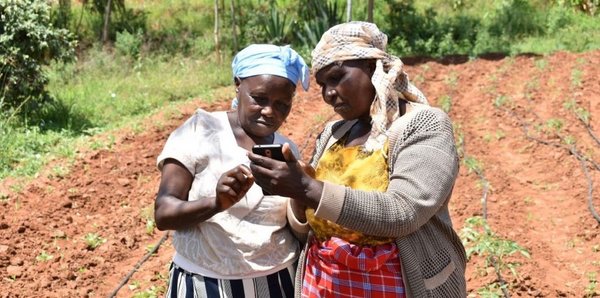 Read this article in French
Read this article in French- Share this article
- Subscribe to our newsletter
SDC – engaging the private sector for sustainable development
The Swiss Agency for Development and Cooperation (SDC) sees Private Sector Engagement (PSE) as a way to foster innovation and achieve greater impact. SDC defines PSE as interventions where it and one or several private sector partners share a vision and join forces for impact-driven development interventions, in support of its existing strategies.
PSE at SDC is characterised by three core attributes. Firstly, interventions are conceived and developed jointly (co-initiating). Secondly, all partners are involved, at least at the strategic level, in the implementation (co-steering). Thirdly, all partners contribute in a substantive way to the financing of the intervention (co-funding).
In a true partnership, costs, risks and benefits should be distributed equitably. As a benchmark for assessing this, SDC uses three dimensions of fair play. Firstly, risks should be shared in a fair manner. Secondly, costs should be distributed equally. Thirdly, all partners involved should accrue an equitably share of the benefits.
As of the end of 2021, the SDC's active portfolio of projects with a PSE component included 142 projects with a total financial volume of around CHF 900 million. PSE is present, in one way or another, in all of the SDC's thematic areas and all operational divisions. The main partners in PSE are private foundations, small and medium-sized enterprises, large corporations and social enterprises.
Independent evaluation of Switzerland's international cooperation engagement in the private sector
The SDC wanted to know how well its PSE project portfolio was performing and if SDC's procedures and PSE modality were adequate for achieving the goals of Switzerland's international cooperation strategy. For this purpose, it mandated an independent evaluation by external experts.
The evaluation found that the diligent effort and significant resources invested by the SDC in its PSE were starting to pay off in innovation, learning and some promising results. Examples can be found in the considerable innovation across the PSE portfolio. In the PSE project, the SDC co-developed a payment mechanism that remunerates enterprises for a specific impact, known as the Social Impact Incentives. This mechanism has been taken up widely by different donors in different sectors.
SDC has developed a strong set of PSE tools and guidance documentation and training material through its Competence Centre for Engagement with the Private Sector (CEP). These materials are taken up by SDC staff, albeit only slowly. Through its PSE work, the SDC is starting to foster increased private sector long-term involvement in emerging solutions to developmental problems. To foster the development of and access to treatment for diseases mostly affecting the poor, the SDC has been supporting Product Development Partnerships. These are considered to be a game-changer for diseases such as tuberculosis, malaria and HIV.
In the independent evaluation, the external experts recommend that the SDC strengthen and streamline the PSE monitoring and evaluation system to improve decision-making. To capitalise on the work carried out and the existing guidance documents and trainings, the SDC should develop a coherent narrative defining PSE and provide clear guidance for implementation of PSE to external and internal stakeholders.
In response to the evaluation and the recommendations, the senior management of the SDC defines measures. These are recorded in the Senior Management Response which is included in the evaluation report. For example, the SDC agrees with the evaluators that PSE expertise needs to be enhanced. This has to happen in a targeted manner, taking into account the different levels of engagement for different SDC staff in PSE.
Evaluations at SDC:
The Evaluation and Controlling Specialist Service of the SDC is responsible for mandating institution-wide evaluations and for promoting evaluations within the SDC. Evaluations at SDC have three purposes: to provide solid evidence for 1) project and programme steering, 2) institutional learning and 3) accountability to the public and parliament. Each year, the SDC commissions 80-100 project evaluations and 3-4 thematic and institutional evaluations.
(SDC/wi)
More information:
Independent Evaluation of the SDC’s Private Sector Engagement 2015-2021





Add a comment
Be the First to Comment